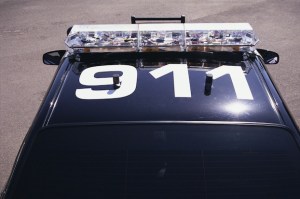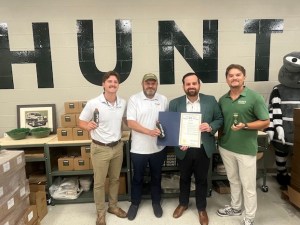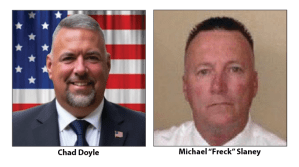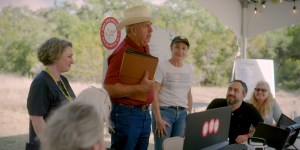Chaisity Shay Paddio-Owens is first African-American female mortician, funeral home owner in Jeff Davis
Published 12:38 pm Sunday, August 11, 2024
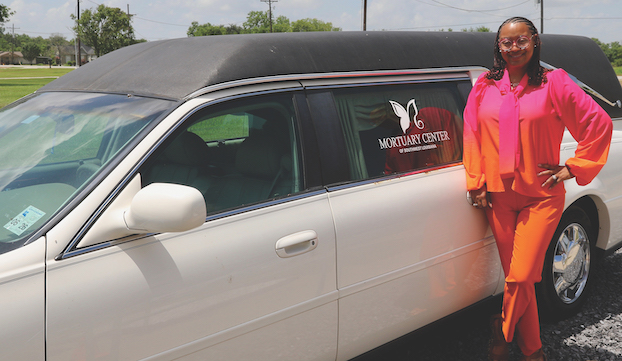
- At age 36, Chaisity Shay Paddio-Owens has realized her lifelong dream of becoming a mortician and opening her own funeral home in her hometown. (Doris Maricle / American Press)
At 36, Chaisity Shay Paddio-Owens has realized her lifelong dream of becoming a mortician and opening her own funeral home.
The Jennings native has always been intrigued by death since childhood. Today, she considers caring for the deceased and facilitating final goodbyes as her calling.
“I was about 8-years-old when I started being fascinated with death or death of animals and how things happen after you pass,” Paddio-Owens said. “They had a murder in Jennings and I remember asking my grandmother, who takes care of the deceased, and she told me the undertaker.
Trending
“So I’m literally 8 or 9 going around, telling my family, ‘I’m gonna be an undertaker,” she said.
Nobody took her seriously until she graduated from mortuary school.
“There was nothing else I wanted to do,” she said of her love and passion for working with the dead. “This has been a part of me since I was little. It’s a gift that was placed inside of me. You don’t just wake up wanting to be a mortician.”
She is now the first African-American female mortician and funeral home owner in Jeff Davis Parish.
She has a tattoo of a skull with the word “undertaker” on her upper arm to honor her late father, who was the first body she embalmed. The tattoo also served as a motivation for her to finish mortuary school.
“My dad was the first body I embalmed and I directed his funeral and buried him,” she said. “That was the least I could do for him. The whole time I was in mortuary school, he had prostate cancer, so I was coming home every weekend to check on him and it got tough.”
Trending
During one of those visits, Paddio-Owens asked her father about embalming him.
“His words were, ‘If you feel you can do that for me, it’d be an honor,’ so I had to do it,” she said.
Since then she has honored countless aunts, cousins and friends of the family by preparing their remains for funerals.
When her brother passed away, she was the one to braid his hair.
“I was 12 years-old and had just learned how to braid hair, and I went to a local funeral home here in Jennings and I braided his hair,” she said. “From that day, I knew what school I was going to, and I knew that’s what I wanted to do.”
After graduating from high school in 2006, Paddio-Owens attended the Commonwealth Institute of Funeral Services in Houston, Texas where she learned to be a mortician. She returned home a year later seeking a job in the funeral home business.
“It took me about six months to find a job in my field,” she said, noting that at the time many funeral homes weren’t open to the idea of having a female mortician, or anyone that wasn’t family.
She started her career at Combre Funeral Home in Lake Charles where she spent eight years learning to be strong minded and how to embalm, be a funeral director, handle grieving families and to remove bodies.
“Everything started there,” she said. “Marcus Combre was my mentor there.”
The skills she learned there only motivated her more, she said. She went on to work at Hixson Funeral Home in Lake Charles where she was the first African-American female mortician to work there.
“I learned so much in the three-and-a-half months I was there,” she said.
She spent two and a half years managing another local funeral home before going to work for Ford and Joseph Funeral Home in Opelousas. She left after six months because she was getting married and pregnant.
“It was just too much, and I ended up staying home with my son for two-and-a-half years working on my business plan and driving cement trucks,” she said.
“At first I was just going to build a funeral home,” she continued. “I had bought some land to build a funeral home in downtown Jennings, but it was going to cost me entirely too much money to build.”
In April she opened her own business, Mortuary Center of Southwest Louisiana, in a former church on four-acres of land just two miles north of Jennings.
“I purchased the building in 2022, but it took me another six or seven months to actually get the finances I needed,” she said. “I didn’t have any investors or grant money. It was just hard work, prayer and dedication for me and my husband.”
There she serves as an embalmer, funeral director and insurance agent. She recently started her own printing company to do programs and other memorials for services.
Her future goals include training young men and
women for careers in the
mortuary business and opening a mortuary service in the Lake Charles area. She also wants to have a homeless shelter to help feed, shower and serve homeless people.
Paddio-Owens said her goal has always been to make the funeral home welcoming and to make funerals more diverse and affordable while offering comfort to bereaved families. The funeral home offers customized services, including celebrations of life and butterfly releases.
“I pride myself on diversity, because here in this area, we’re still segregated,” she said. “We still have our own cemeteries, a railroad track separates white from black and whites go to a white funeral home and blacks to a black funeral home. I want to change that narrative. It doesn’t matter what color you are. I worked at all funeral homes, black and white. I have services for all races, religions, and I treat everybody with the same respect.”
Paddio-Owens said she was tired of families having to spend money they didn’t have to bury their loved ones, many without insurance.
“So when somebody says, ‘I have $2,200, what can you do,’ I’m not letting them leave,” she said. “I work with them to find something they can do with their budget. They have nothing, but they have their loved ones. They need to bury them and I am able to find something for them. That makes me complete whenever I can help a family.”
It is important that funerals reflect the life and personality of the deceased, she said.
Paddio-Owens said the hardest thing about the business is being an African-American female mortician in a traditionally male dominated field where women are judged as being too emotional and told they should be doing paperwork behind a desk, not in the embalming room.
“But I don’t think like that,” she said. “You have to have tough skin. If you don’t have tough skin in this industry, you can’t make it.”


